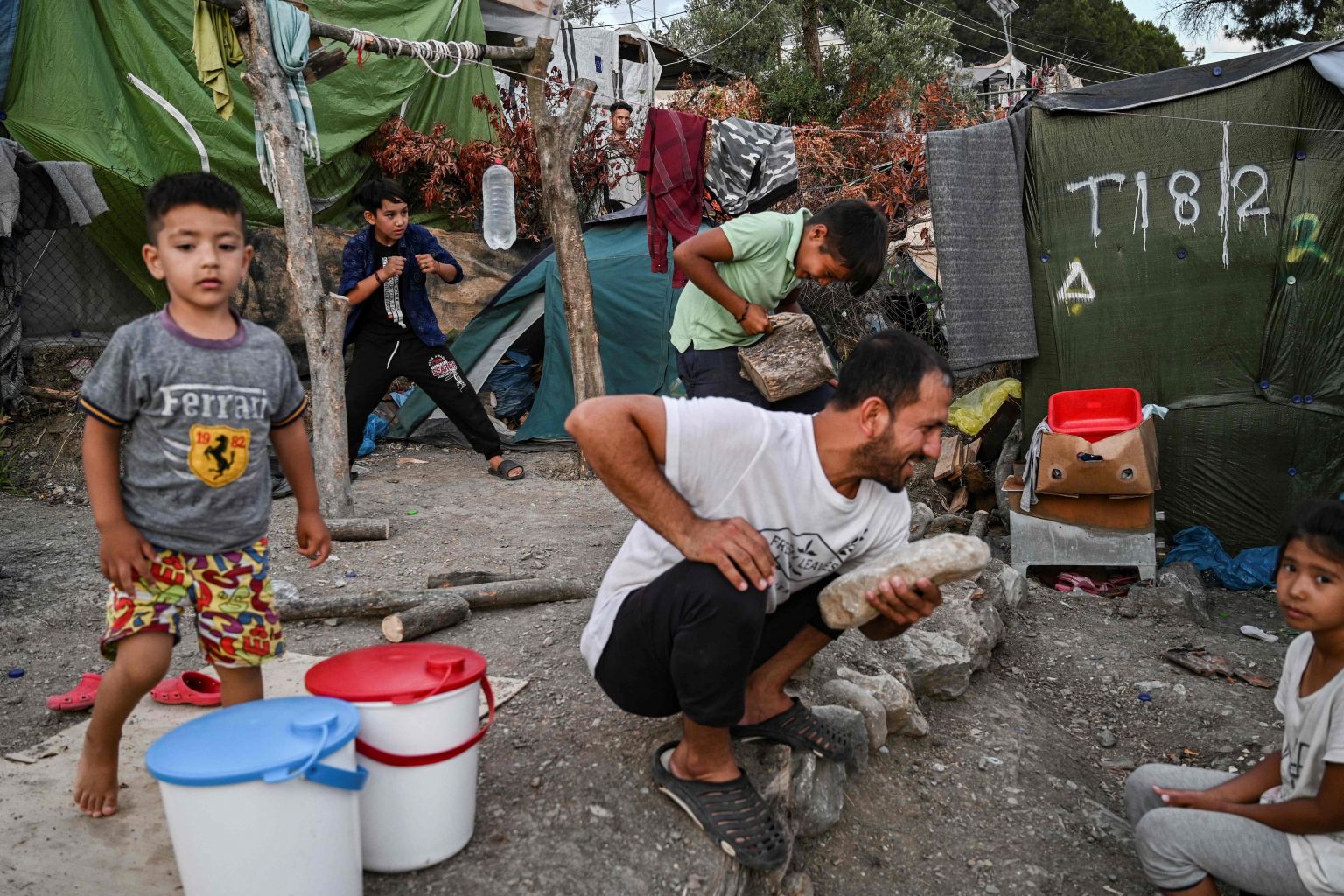Greece to deploy floating anti-migrant barrier near Lesbos
Sign up now: Get ST's newsletters delivered to your inbox

Migrants are pictured in an improvised camp near the refugee camp of Moria on the island of Lesbos on June 21, 2020.
PHOTO: AFP
ATHENS (AFP) - A floating barrier commissioned by the Greek defence ministry to stop migrants arriving from the Turkish coast is to be deployed off the island of Lesbos in coming weeks, a ministry source said on Tuesday (June 30).
The area north-east of Lesbos chosen for the project is one used by hundreds of thousands of asylum seekers attempting to enter the country from neighbouring Turkey in recent years.
The aim is to have the barrier in place by the end of August, the source told AFP.
The barrier will be 2.7km long, 1.10m high and will cost an estimated €500,000 (S$780,000).
It will be equipped with lights to make it visible at a distance of 10km.
Rights groups have criticised the plan as potentially life-threatening to asylum seekers in overflowing dinghies who often require rapid rescue.
In 2019, Greece was the first port of entry for migrants and refugees entering Europe.
The Greek government has struggled to manage the influx, keeping many in overcrowded camps on the Aegean Greek islands near the Turkish coast.
A wire fence on Greece's land border with Turkey is also currently being expanded.
In late February, Turkish President Recep Tayyip Erdogan said he would let migrants wishing to get to the EU to travel through the country.
Thousands of migrants flocked to Greece, many gathering in the Evros border area or taking makeshift rafts to Greek islands.
In 2016, Turkey and the EU agreed a deal whereby Brussels would provide billions of euros in aid in exchange for Turkey curbing the flow of migrants.
But Ankara has repeatedly accused the bloc of not fulfilling promises made as Europe suffered its worst refugee crisis since World War II, when over one million people fled to the continent in 2015.
Erdogan has felt extra pressure as nearly one million people in Syria's northwestern province of Idlib fled towards the Turkish border during a recent Syrian regime assault backed by Russia and Iran.


